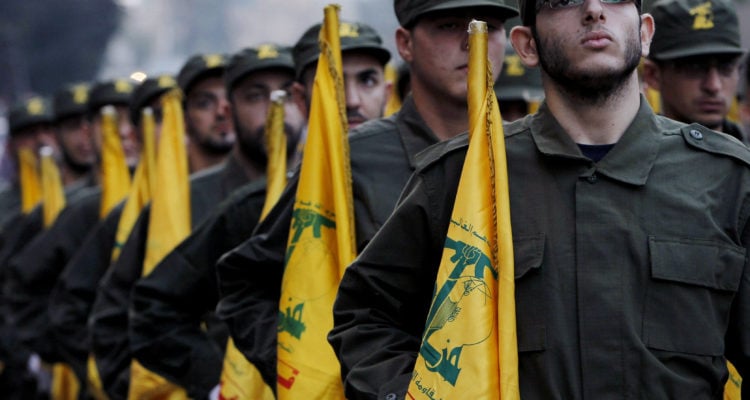|
Getting your Trinity Audio player ready...
|
By John Hayward (Breitbart)
Israel Defense Forces (IDF) personnel on Tuesday accused peacekeepers from the United Nations Interim Force in Lebanon (UNIFIL) of ignoring ceasefire violations by Hezbollah in Lebanon.
Israeli Prime Minister Benjamin Netanyahu threatened to “respond strongly” after Hezbollah launched projectiles at an Israeli military post.
Israeli officials said on Monday that Hezbollah fired on Mount Dov, an area near the combined borders of Israel, Syria, and Lebanon. Hezbollah said the shots were fired as a “defensive and warning response” due to “repeated violations” of the ceasefire by Israeli forces.
Israel has conducted at least four airstrikes and one artillery barrage on positions in southern Lebanon since the ceasefire began last Thursday, ostensibly to neutralize “threats to Israeli civilians.”
“Hezbollah’s firing at Mount Dov constitutes a serious violation of the ceasefire, and Israel will respond strongly to this,” Netanyahu said on Monday.
“We are determined to continue to enforce the ceasefire, and to respond to any violation by Hezbollah – minor or serious,” he said.
Israeli Defense Minister Israel Katz added that Hezbollah violations would be met with a “harsh response.”
Israel has long complained that UNIFIL does not do enough to monitor Hezbollah for illegal activities in southern Lebanon. Fox News on Monday quoted accounts from IDF soldiers who were astonished by just how much misbehavior UNIFIL was prepared to ignore:
A documentary filmed in the southern Lebanon village of Houla a few weeks prior to the cease-fire captured Israeli reserve soldiers as they moved cautiously from house to house, clearing each room as they advanced through a Hezbollah stronghold. Gunfire erupted suddenly, forcing the troops to take cover as Hezbollah terrorists fired at them from nearby homes. The exchange intensified, with bullets cutting through the air, when an unexpected sight left the soldiers stunned: a UNIFIL convoy driving directly into the firefight.
The white U.N. vehicle crossed the road separating the Israeli soldiers from Hezbollah fighters, coming to a halt amid the smoke and chaos. A UNIFIL peacekeeper stepped out, seemingly oblivious to the life-threatening battle unfolding around him. “It was a total surprise. The IDF soldiers were shocked,” said Itai Anghel, an Israeli journalist embedded with the Israeli Defense Forces (IDF). “The timing of the convoy’s arrival, as well as its route, made the soldiers suspect coordination with Hezbollah.”
Anghel, a veteran war reporter for the Israeli TV program “Uvda,” described the bizarre scene. “This was not my first time in Houla. I documented the battle here during the Second Lebanon War 18 years ago, but this time, it was worse,” he said. “Every second or third house in the village was packed with weapons – RPGs, rockets, tunnels – all aimed at storming Israeli villages just a few kilometers away.”
Anghel told Fox News that IDF soldiers have almost zero trust in the U.N. peacekeeping operation and are convinced that Lebanese villages will quickly become Hezbollah ammo dumps again after Israeli forces withdraw.
Other IDF officers said they have seen UNIFIL turn a blind eye to Hezbollah forces that mixed vehicles into their convoys, planted cameras in their facilities, pitched tents right next to U.N. fences, and even dug terror tunnels within a few yards of U.N. bases.
“Everyone played the game – they knew Hezbollah was there, walking freely among them. And nothing was done,” one IDF soldier said.
UNIFIL’s response to these criticisms has been that it has no mandate or authority to enforce the U.N. resolutions that spectacularly failed to keep Hezbollah out of southern Lebanon. U.N. personnel were merely supposed to support Lebanon and Israel while they policed Hezbollah.
A U.N. spokesman claimed the period from 2006 to 2023 should be seen as a success because while Hezbollah stockpiled tons of munitions under UNIFIL’s nose, they hardly ever used them.
Israel is not inclined to view this as cause for celebration because Hezbollah had an array of rocket launchers, mortars, tunnels, and fortified bunkers ready to attack Israel after the October 7 atrocities perpetrated by Hamas.
The IDF could not help noticing that hundreds of those Hezbollah attacks were launched from very close to UNIFIL bases, but only two of them were denounced by the United Nations as illegal Hezbollah actions.
This history is grimly relevant to the ceasefire debate because, as Netanyahu’s critics point out, the deal once again assumes the Lebanese government — which is politically dominated by Hezbollah — will keep Hezbollah weapons out of the same area that was never supposed to be militarized in the first place. The IDF says it has already caught Hezbollah cheating by smuggling weapons into the forbidden zone, prompting Israeli strikes.
Defense Minister Katz said on Tuesday that Israel wants to see the Lebanese Army act more aggressively to “keep Hezbollah away beyond the Litani, and to dismantle all their infrastructure.” The Litani River, located about 18 miles from the Israeli-Lebanon border, marks the line Hezbollah forces are not supposed to cross.
“If they don’t do it and this whole agreement collapses, then the reality will be very clear. First of all, if we return to war we will act strongly, we will go deeper, and the most important thing they need to know is that there will no longer be immunity for the state of Lebanon,” Katz warned.






